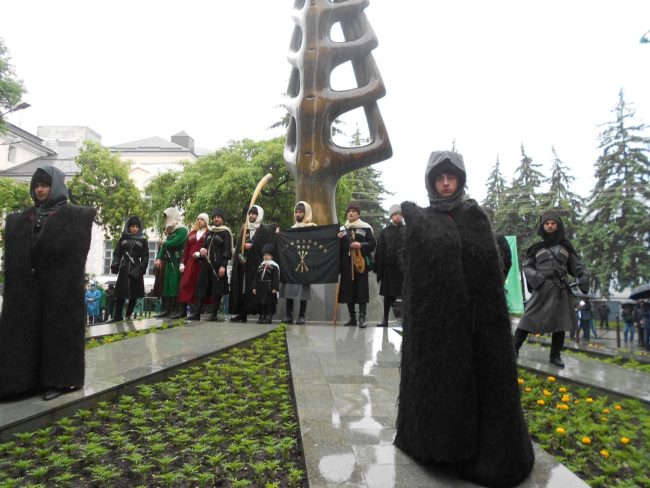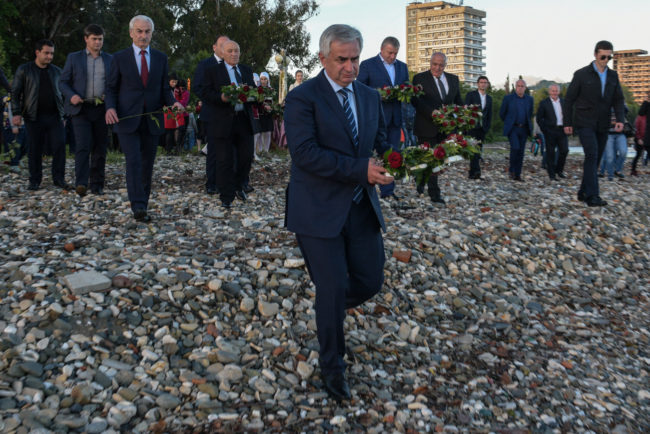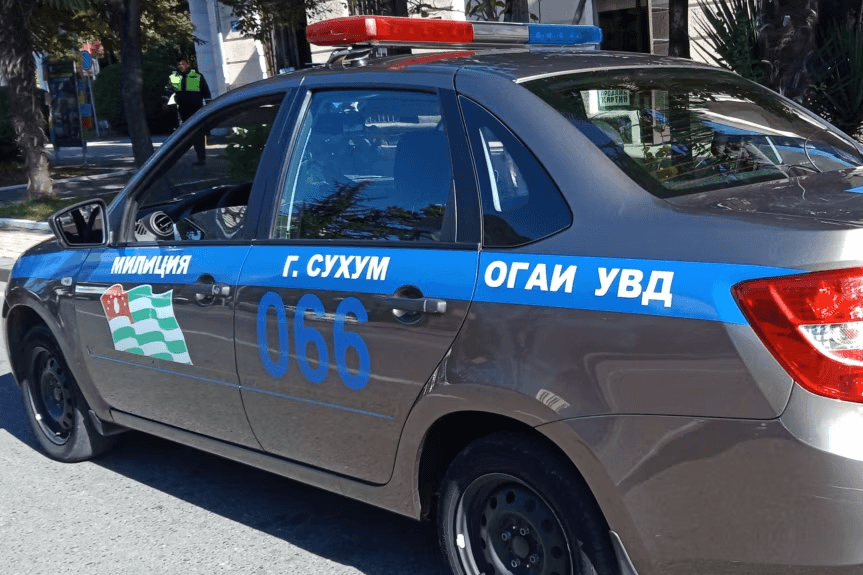

 The twenty-first May marked the anniversary of the symbolic end of the 1817–1864 Russian conquest of the Caucasus, which resulted in the Russian annexation of the North Caucasus and the ethnic cleansing of Circassians, the majority of whom were either killed or deported to the Ottoman Empire.
The twenty-first May marked the anniversary of the symbolic end of the 1817–1864 Russian conquest of the Caucasus, which resulted in the Russian annexation of the North Caucasus and the ethnic cleansing of Circassians, the majority of whom were either killed or deported to the Ottoman Empire.
Memorial events were held in the capitals of Adygea, Karachayevo-Cherkessia, and Kabardino-Balkaria — the Russian republics which made up most of historic Circassia.
In Nalchik, the capital of Kabardino-Balkaria, local activists marched through the city towards the Pse Zhyg (Tree of Life) monument, wearing traditional clothes and holding Circassian flags. Other events included exhibitions, meetings with local artists and writers, and performances of plays. According to RFE/RL’s North Caucasus service, Kavkaz.Realii, no government officials attended the commemorations.
Russian news agency Interfax reported that construction of a memorial to the victims of the war is planned in Cherkessk, the capital of Karachayevo-Cherkessia. The planned monument will be six metres tall and will depict a dagger thrust into a rock.
The victims of the war were also commemorated in Abkhazia, which lost about 60% of its indigenous ethnic Abkhaz population — which has strong linguistic and cultural ties to Circassians — during the Russian conquest.
Commemorative events were held in Abkhazia’s capital Sukhumi (Sukhum), which included an exhibition of artworks by Abkhaz repatriates from the Middle East and a solemn musical performance in the Abkhaz Drama Theatre. In the evening, Abkhazian President Raul Khadzhimba and government officials threw flowers into the sea.

Georgia’s Public Defender Ucha Nanushvili released a statement commemorating the victims of the war and deportations, saying that further study of their history was necessary to prevent such tragedies from happening in the future.
‘As a result of the wars and emigration of muhajirs (deportees), all traces of these peoples virtually disappeared from the lands they inhabited, and their material culture and language were lost’, the statement reads.
An event dedicated to the memory of the victims of the war was held in Tbilisi by the local Circassian Cultural Centre, during which activists threw flowers into the River Mtkvari.
Georgia recognised the ethnic cleansing of Circassians as genocide in 2011, and remains the only country in the world to have done so. A monument to the victims of the genocide was erected in the seaside resort of Anaklia in 2012.
According to some estimates, up to 75% of the Circassian population was affected by mass killing and deportations in the 19th century. The Russian conquest of the Caucasus also resulted in the mass displacement of other Muslim peoples, such as Abkhaz, Ingush, Chechens, and Adjaran Georgians. The Ubykhs, a North Caucasian ethnolinguistic group related to Circassians and Abkhaz, were deported from the Caucasus in their entirety; the last Ubykh speaker died in Turkey in 1992.
For ease of reading, we choose not to use qualifiers such as ‘de facto’, ‘unrecognised’, or ‘partially recognised’ when discussing institutions or political positions within Abkhazia, Nagorno-Karabakh, and South Ossetia. This does not imply a position on their status.








